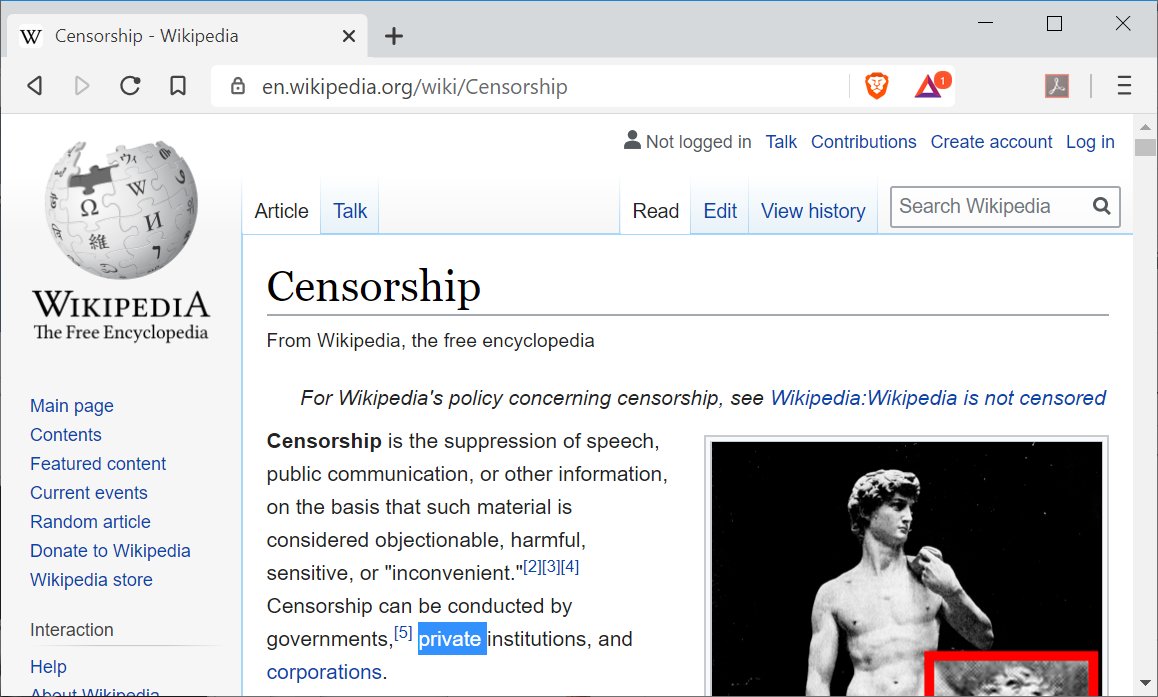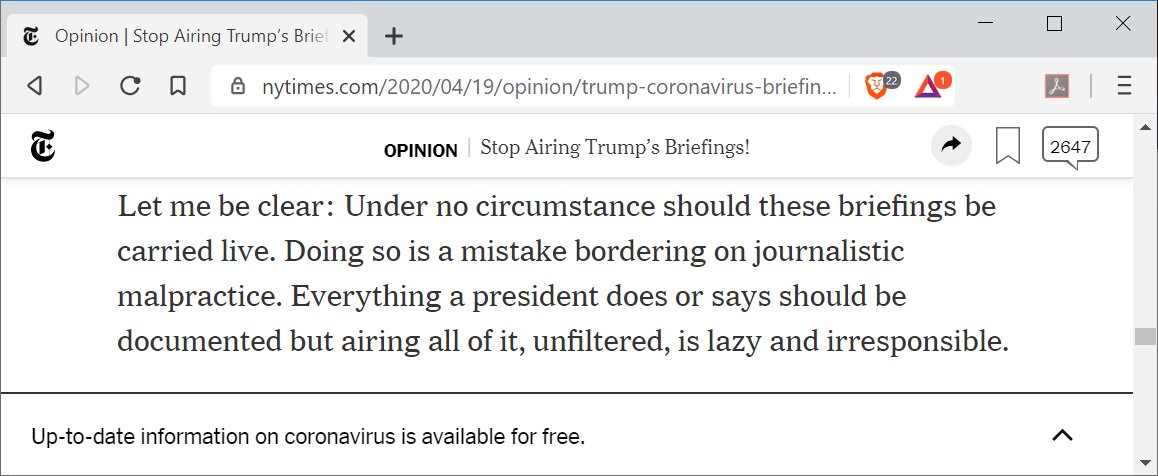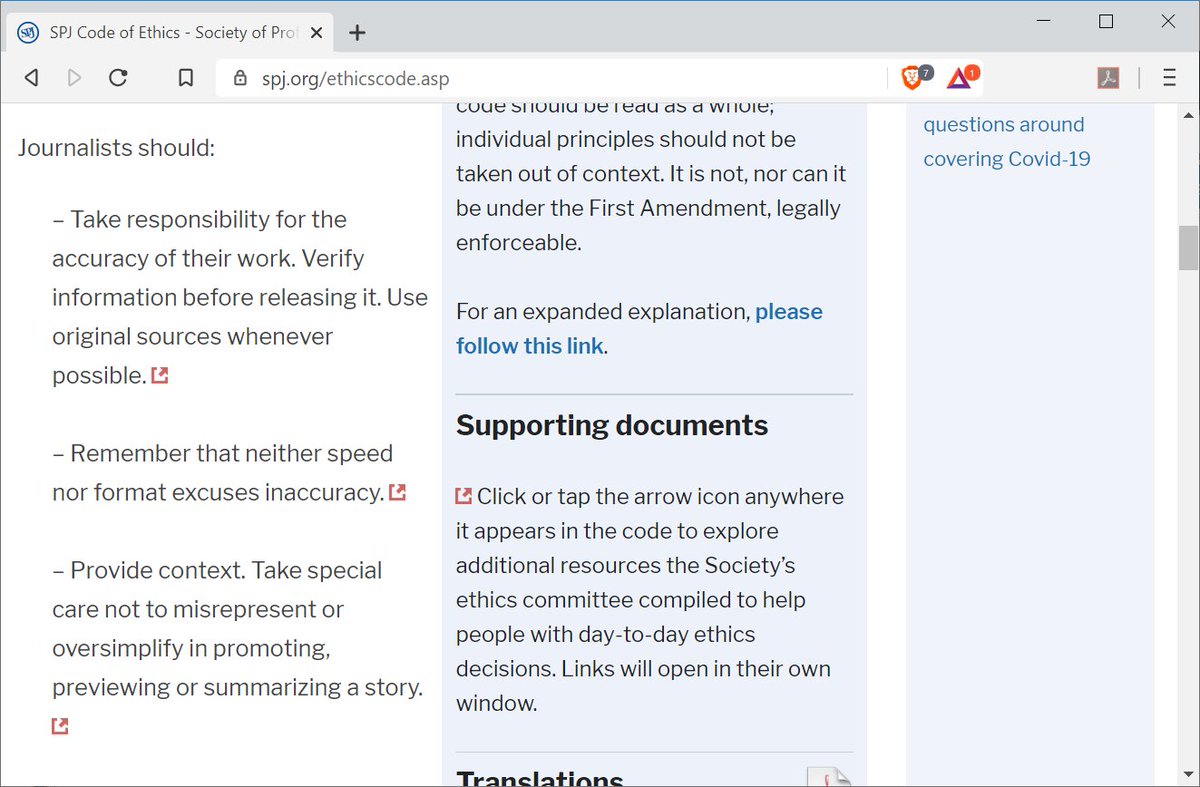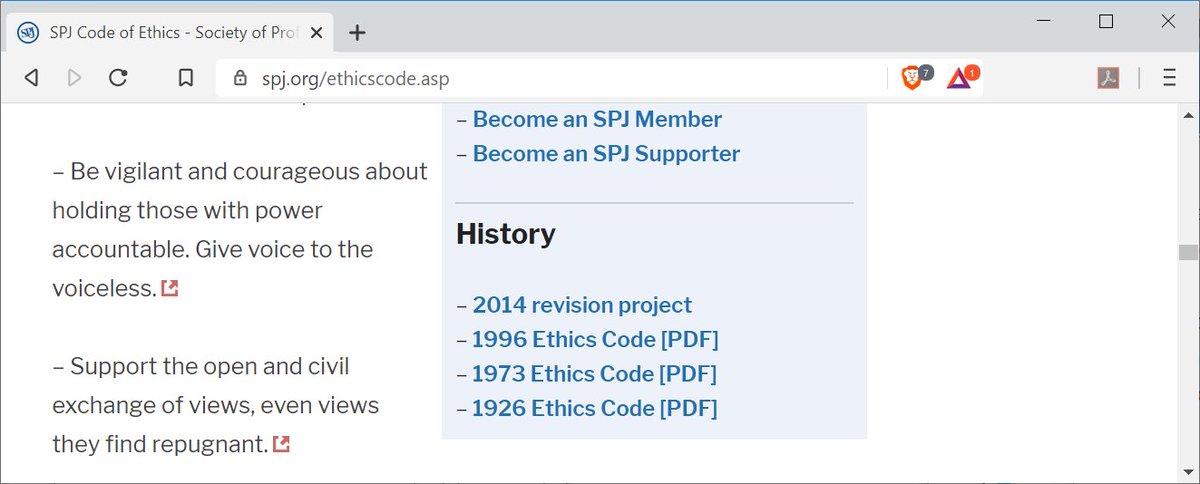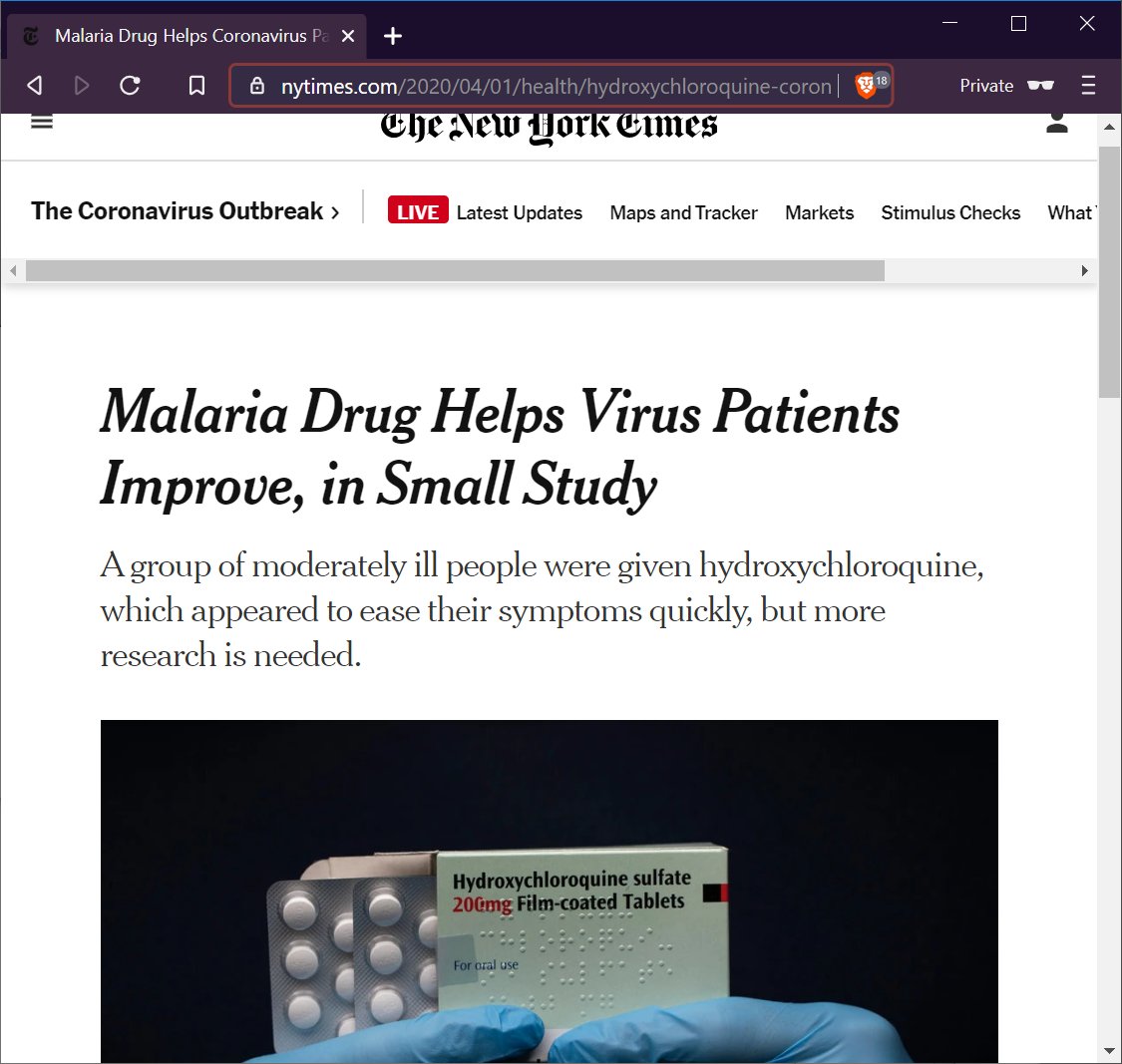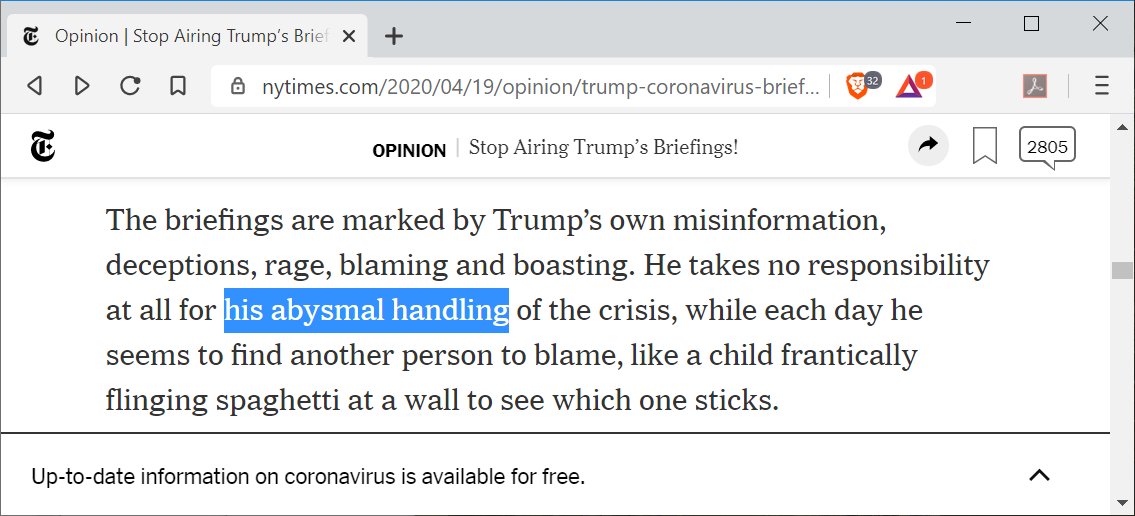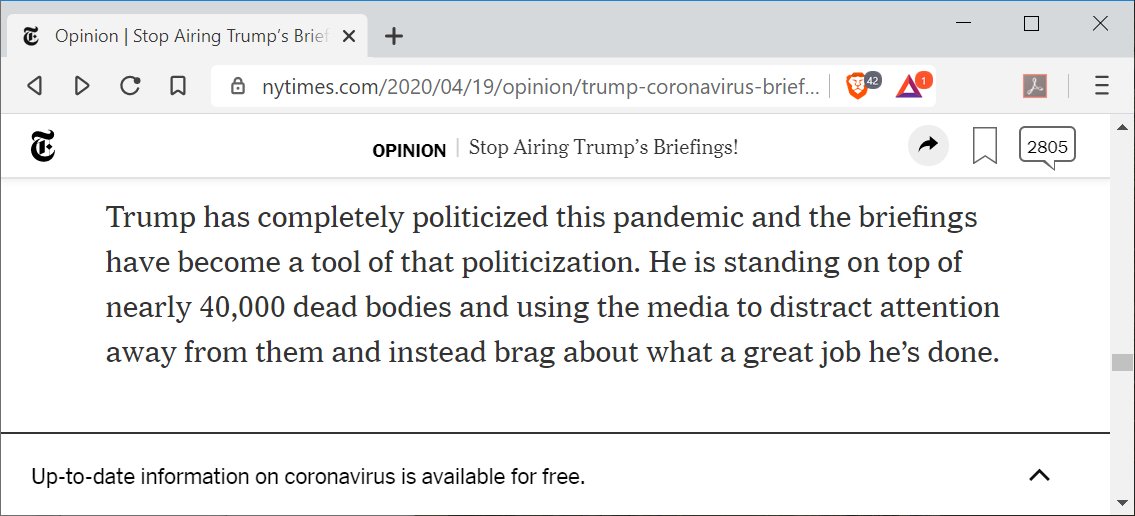The NYTimes takes a bold position promoting censorship. https://twitter.com/nytimes/status/1252238110370476033">https://twitter.com/nytimes/s...
As usual, such tweets result in people explaining (wrongly) that it& #39;s not "censorship" because TV is privately owned.
The NYTimes article claims the opposite of journalistic responsibility. Providing access to the unfiltered content is journalistic responsibility, censoring part of it is what& #39;s irresponsible.
Sure, Trump frequently displays his unfitness for the presidency in his daily covid briefings. But to report on this, the press has to make available the full unfiltered source material.
Yes, journalists should provide "context". But that doesn& #39;t mean "censoring" it. Frankly, as bad as Trump has been, the media has been worse, flagrantly editing his content to misrepresent what he says to make it sound worse.
Yes, Trump& #39;s statements are often repugnant. Journalists win by airing Trump& #39;s statements and rebutting them, not by suppressing them.
Part of the problem is that journalists can& #39;t provide context. Trump& #39;s support for hydroxychloroquine is virulently anti-science, but the NYTimes doesn& #39;t employ people who understand science to provide context.
https://www.nytimes.com/2020/04/01/health/hydroxychloroquine-coronavirus-malaria.html">https://www.nytimes.com/2020/04/0...
https://www.nytimes.com/2020/04/01/health/hydroxychloroquine-coronavirus-malaria.html">https://www.nytimes.com/2020/04/0...
The NYTimes shows time and time again that it& #39;s beef with Trump is purely political. They want to censor Trump because they oppose his politics, not because he& #39;s any more factually wrong or more anti-science than the NYTimes is.
All presidential speeches are self-serving propaganda, whether Trump& #39;s or Obama& #39;s or the leader of any other country. What they have to say is still newsworthy, but they all need to reported (or not reported) the same.

 Read on Twitter
Read on Twitter